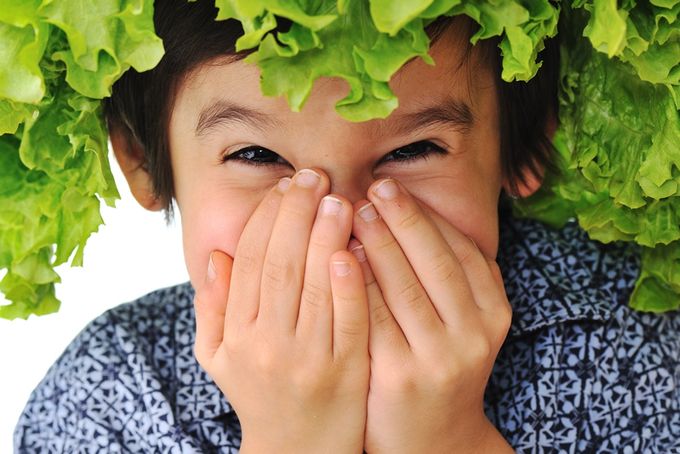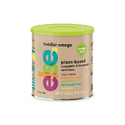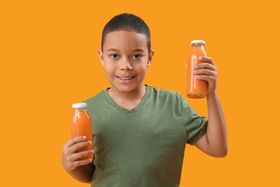Plant-Based Nutrition for Kids
Updated November 18, 2024

Plant-based diets have existed for centuries, but have only recently gained popularity in mainstream culture, and it’s seen explosive growth. Lucky for vegetarians, vegans, flexitarians, and those who like to be ‘label-less’ - there is a lot more plant-based food variety than ever before. Long gone are the days of plant-based foods being isolated to local health food stores; a quick trip to bigger box grocery stores and you will find countless vegetarian and vegan options in the frozen aisle, dairy, and meat sections (and yes, even in the jerky aisle). Lucky for families who are choosing to adapt more plant-based nutrition for their children, there are more food options that help ensure appropriate growth during the crucial years of development.
Why Go Plant-Based?
Some families choose to follow a plant-based lifestyle for ethical, environmental and sustainability reasons. Others choose plant-based eating diets for suspected health benefits. Leading doctors endorse a plant-based diet as a way to combat heart disease, diabetes and obesity. Generally, plant-based diets are higher in fiber, unsaturated fats, vitamins, anti-inflammatory antioxidants and phytonutrients. And, others opt to choose more plant-based options, specifically plant-based milk, due to either documented or suspected allergies or intolerances to animal food products.
Choosing plant based food lowers the exposure to foods derived from animals that may have been treated with antibiotics or hormones. While there has been no direct negative consequence found as a result of antibiotics or hormone use in animals, there has not been a lot of research on its safety either. This leaves many, parents included, who want to minimize the potential indirect exposure of animal antibiotics and hormones to themselves and their little ones during their crucial years of development.
Is Plant-Based Safe for Kids?
As a Registered Dietitian specializing in pediatrics, ensuring appropriate physical and cognitive development in children is a main priority for me. And, I know this is a priority shared with most pediatric healthcare providers. Generally, children should be on the least restrictive diets as tolerated to make sure they are getting in all of their needed nutrients to grow. Which is why some question the safety of a plant-based diet for kids because of the potential nutritional deficiencies, particularly early in life, that may have consequences on growth and cognitive development. But let’s jump to what the actual experts, including the Academy of Nutrition and Dietetics (AND) and the American Academy of Pediatrics (AAP) say: a well-planned vegetarian diet can support adequate nutrition in growing children. And, many studies back this up.
If you do choose a vegetarian or vegan lifestyle for your family, ELSE Nutrition can be a beneficial addition to your child’s diet. ELSE is a dairy-free supplement that ensures your plant-based kids get needed nutrients such as protein, healthy fats, calcium, Vitamin D, and Vitamin B12. It can also be used as a cow’s milk or soy milk alternative for infant formula. By using ELSE, plant-based families can be sure they’re making a nutritious choice for their kids.
The content and advice provided in this article is for informational purposes only and is not a substitute for medical diagnosis, treatment, advice for specific medical conditions. Always consult a pediatrician to understand the individual needs of your child.










